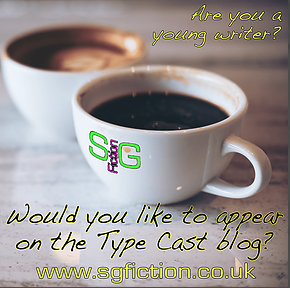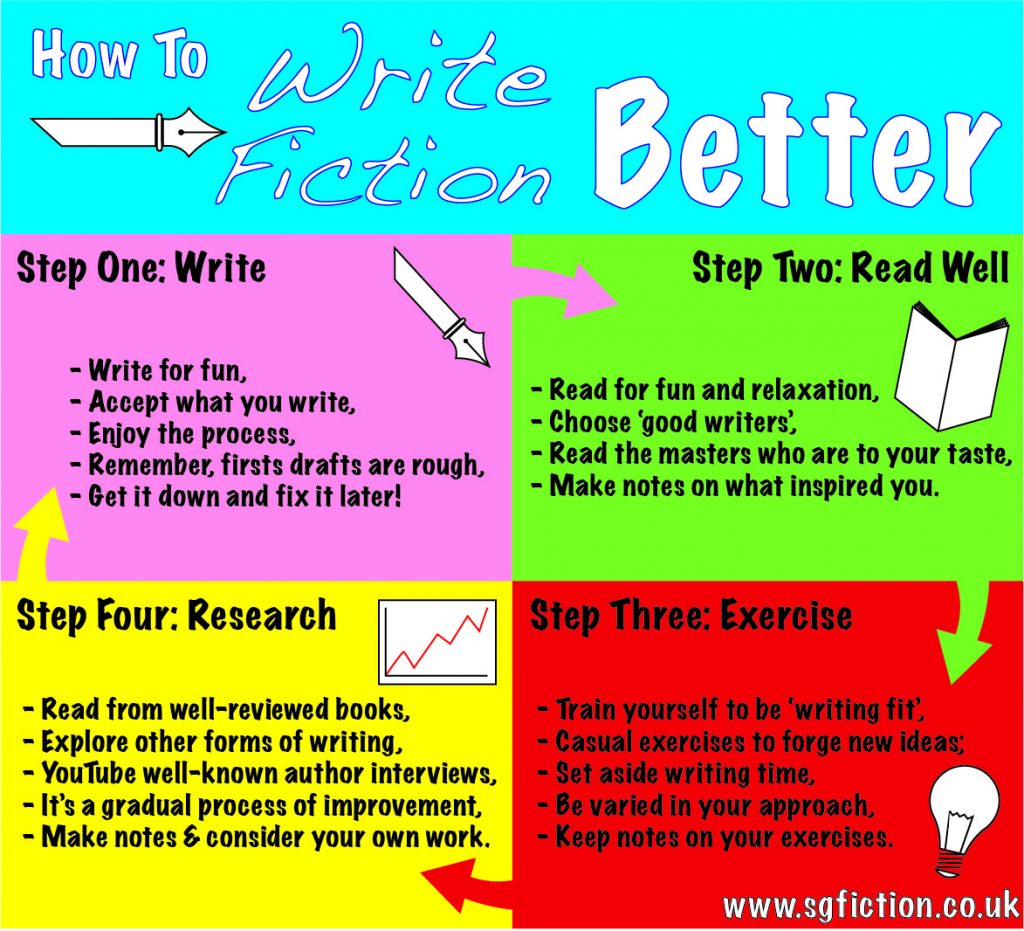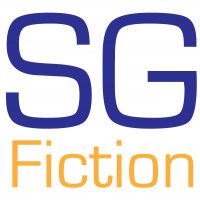Writing Ideas and Tips to Write Fiction Better as an Author / Writer
Why We Want To Write Fiction Better
Dystopian fiction writer, Scott Gilmore, shares how to write better fiction. Writing ideas and tips to write well as a fiction author or writer are all over the internet and YouTube. Read this blog article to see what you can learn.
As a dystopian fiction writer, I regularly read posts on social media where writers ask for advice on how to write better fiction. This is common across much of the online #WritingCommunity and #WritersCommunity forums or social media streams.
Many YouTubers try to offer a magic pill for such requests from authors and writers around the globe. Yes, this may get views, likes and shares, but what exactly are those who watch the content getting out of it?
There is some excellent advice on YouTube and in online creative writing blogs, such as this one. I know I will come across as hypocritical by writing an article like this one, but I simply had to write it. Like you, I want to write fiction well and as best as I can!
From being a regular scroller of social media on multiple platforms, I see a pattern that repeats itself. All I can do as a fellow fiction writer and young adult author is to share my experiences and what has worked for me. Whether you are writing as a beginner or experienced at novel writing, I feel we can all learn from one another.
By sharing our craft, our process, and how we work as creatives, we can:
- Help to hone our process further;
- Get inspiration from fellow writers;
- Feel part of a wider community;
- Feel less alone in a very lonely profession, hobby or past time.
Yes, there may be processes you disagree with, and that’s fine. The method of exploring them is where we can learn as authors and see what helps or hinders us. We need to remember that the process is for us to write fiction better or write fiction well.
Read this blog article to see what you can learn and please email me at scott@sgfiction.co.uk with your ideas, processes and craft as a writer. I am eager to hear from my contemporaries and fellow authors, writers, poets, playwrights and screenwriters!

Step One: Write
I know it sounds simple, but it’s true! Many fiction writers simply don’t write enough or get enough time to do it. If you have responsibilities, like work, young children or errands to run, these are unavoidable and part of life – try not to beat yourself up about it!
There are some fiction authors get down about the fact that they cannot get time to write, plan or think over creative ideas. When I see such posts online, I want to type a message immediately and ask them to take a breath, accept that their plans may have changed for the day and do their utmost to set aside time another time to write something of use.
Remember that writing is something that you should try to enjoy and not pressure yourself with! When some beginner writers find time to write, they can share posts that berate themselves that they ‘got nothing done’ or ‘wrote a lot of nonsense.’
When we have thoughts like this about the time we get to write, we end up resenting it. We can then find ourselves thinking negatively at the process of writing and, in turn, writing ‘a lot of nonsense.’ This self-fulfilling prophecy then spirals, and many writers can then hit a wall – Writer’s Block. If you want to write fiction well, you have to think positively!
What can we do?
- Write for fun and, if it is, don’t share it online;
- Accept what you write for what it is;
- Enjoy the process, not the final outcome – remember to be positive;
- Remember, firsts drafts are rough and can be ‘a lot of nonsense.’
- Get it down and fix it later! That’s what redrafting is! Thinking negatively can spiral!
Step Two: Read and Read Well!
Yes, it is yet another obvious point, I know! There are many people out there who love to write and get caught up in their work in progress, blogging, writing freelance articles and helping friends with their creative writing goals. These people get so caught up that they forget to do one of the most fundamental aspects of fiction writing, inspiration, creative and authorial development there is – READING!
I share this point because I have fallen into this trap recently. I know, I’m so bad!
I have been writing as a freelance blogger, article writer, creative writing consultant and copywriter and lost sight of what it was that I wanted to achieve. Ultimately, I want to work for myself and get paid to write at the same time. The goal I have to become a professional writer has been there since I was 18 years old and, being 35 now, I am desperate for it to happen almost immediately!
I found myself standing in the study a few days ago, looking at all of the books on tens of shelves on multiple bookcases. The thought dawned on me that I hadn’t read a book in some time! I had become so wrapped up in my own dystopian fiction world of Inside Iris that I took my eyes off everything else!
This moment of realisation hit me like a train. I had become what I always thought I would never be – a middle-aged father who rarely reads, even for relaxation or fun! How did this happen?
I then scanned to the books I read lots when I was a student and during school holidays when I was a teacher. Authors like Douglas Coupland, Chuck Palahniuk, Paul Auster, and Cormac McCarthy called to me and I lifted some of my favourite books down from the shelves to leaf through them for the first time in years.
I changed my outlook and approach immediately. Yes, I am a young adult fiction writer, but I need to read as well! I lifted a book I’d meant to read for a while and started in that night.
What can we do?
- Read for fun and relaxation;
- Casual reading relaxes our minds, and our own ideas can form;
- Read well and choose ‘good writers’ – those who you enjoy and believe to be where you want to be in 10 years;
- Read the masters. Dostoyevsky may not be everyone’s cup of tea but read classics from authors who are to your taste.
- Make notes on what you felt inspired you or blew you away in the book. If you can emulate those techniques, could you blow a reader away?
Step Three: Do Your Exercises!
No, I’m not talking about squats, sit-ups, planks or going for a jog! When writing, we need to remember that our brain needs to have regular ‘exercise’ to train it to be more productive and perform specific tasks better.
In this example, we are talking about writing fiction, so we should train our brain in exercises of writing characters, plot and setting at the very least. We could also try to focus away from our niche of dystopian fiction, young adult fiction, literary fiction or fan fiction!
Before writing, I use 10-15 minutes to write something completely random that is not at all attached to my work in progress. This short time is seen as escapism from the world I’m creating at the time. This meant that there was no science fiction writing of any kind! My creative writing ideas were completely creative and free!
To me, this is incredibly important because we need to remember that we are more than the book, poetry collection or script we are developing at that particular time. Training yourself to see it as a work in progress can help. Set aside the time to work, but also set aside the time to have a break from work!
Some of the pieces I worked on as simple exercises based around character, plot or setting turned out to be incredibly valuable in their own right! The fact that I was able to take that short length of pre-determined time meant that I was able to develop whole new characters, new plot points of the story or, at times, even a completely new work on the ‘to do’ pile!
Taking discipline over your creative writing is a double-edged sword, guys! We need to be disciplined to write – that much is clear! However, we also need to be taught to leave that work in progress behind to rest, to read for fun or explore another option. Taking that break can allow you to step outside the fictional world you are creating and get a new, clearer perspective on your book!
What can we do?
- Train yourself to be ‘writing fit’ – allow your brain to warm up and to cool down, away from your WIP;
- Casual exercises on character, plot or setting can help forge new ideas;
- Be disciplined about your time when working, exercising, playing with words and also when to walk away for a while;
- Be varied in your approach – switch up the exercises you do. Like ice cream, the same flavour will grow tiresome pretty quickly.
- Keep notes on the exercises you play with when away from your WIP! You never know what can turn out to be a rough diamond at a later date!
Step Four: Read About Writing?
There are many fiction authors voices out there, and too many voices can become garbled at times. I know this from personal experience, trust me!
I studied a master’s degree in creative writing and found the process overwhelming or tiresome at times. Continually trying to defend your writing ideas, beliefs and methods against sometimes circling sharks in creative writing workshops were hard for a 21-year-old among more experienced writers.
It took me a long time to digest what I learned during that course and come to realise that I needed to filter what I was told. More importantly, I needed to have confidence and conviction to believe in myself and what I was doing as a writer. It is only since I decided to be determined and write Inside Iris that I have confidence in myself as a writer.
This is one of the hardest things to do, and it cannot be rushed. It takes time and needs to evolve naturally with age and wisdom.
Through the MA, I read a lot of books about writing and, while thumbing books in my bookcase, I came across those books again. Many of them were about playwriting or scriptwriting, which was what I wrote back then. As I looked through the writing exercises and ideas within the books, I tried out a few of them as ‘exercises’ and really enjoyed them.
Whether we write fiction, poetry or drama, we are all doing something very similar – we are telling a story. Many of the times we are writing about people, their feelings, emotions and inner torment that shapes them as people!
What can we do?
- Read for a purpose from well-reviewed books on all styles of writing;
- Be open to exploring other forms for fun and to play with writing or ideas;
- Use YouTube to search well-known writers. See if they talk in author interviews and think about what you could learn and apply in your own craft;
- See it as a gradual process of improvement as you discover ideas, but remember they are not set in stone. Remember to believe in yourself as a writer first and foremost!
- Make notes on what you felt was useful in the book. You can consider these techniques, writing exercises and anecdotes in relation to your own processes.

Click on the image to see the fiction books I have released so far. Both Inside Iris and Anna’s Awakening are available for purchase on Kindle and paperback from Amazon.
Can We Write Fiction Better?
Writing ideas and tips to write well as a fiction author or writer are all over the internet and YouTube. Unfortunately, there are no magic pills for authors and writers to be able to write best-selling fiction novels. If there were, I would sell them and be a millionaire on a yacht by now!
I hope there is advice, and there are processes that you agree with in this creative writing blog. The process of exploring methods and ideas is how we can learn as fiction authors, and we can write better fiction as a result. We need to remember that the process is for us to write the best novel possible, but also to enjoy it too!
If you enjoyed this blog article, please email me at scott@sgfiction.co.uk with your own creative writing ideas, processes and craft as a fiction writer. I am eager to hear from my contemporaries and fellow authors, writers, poets, playwrights and screenwriters!
Please Share The Write Fiction Better Infographic Below





